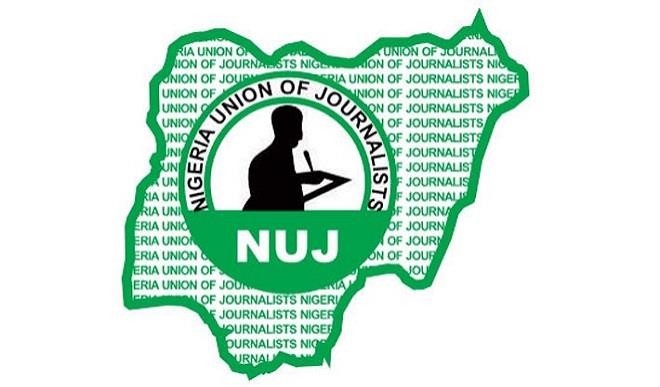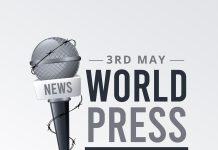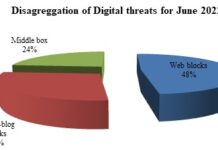Violent deaths, illegal and protracted detention, as well as harassment are common denominators of the experiences of most journalists in Nigeria. Unfortunately, these would persist and get worse for as long as Nigerians think of the welfare of journalists as that of journalists, rather than that of the nation and its citizens.
Our discussion of journalists’ welfare often takes off from a wrong starting point. Even the most forceful and articulate of us conceive of journalists’ welfare as the welfare of journalists. We see journalists as this endangered specie out there, weak and wearied, separated from the rest of us and tugging at our hearts to evoke feelings of kindness. We assume they need our attention and support for their sake – the same way that internally displaced people or red-list endangered species do. This perspective is as wrong as it is demeaning.
The ancient cities had sets of lookouts. The officials of the emperors selected the fittest and the most intelligent and assigned them to lookout posts. They were not to sleep; they were the roving eyes of the city, day and night. Being highly perceptive and highly articulate, they could see and smell danger from afar, accurately estimate it and communicate it to the right links who would, if need be, alert the soldiers. What happened if a set of lookouts was ill or discontented with the empire? What happened if they were poorly remunerated? The consequences to the city could be easily imagined but it would not have been easily borne. The welfare of the lookouts was the welfare of the entire city.
In spite of their shortcomings and excesses, journalists are the lookouts of contemporary societies. The oldest textbooks on journalism identified three roles for the journalist: information, education and surveillance. Surveillance involves looking out for potential dangers, estimating them and articulating them – telling them to the society. This is what journalists do.
Journalists, not state security apparatuses, are our lookouts. The military and other formal security apparatuses are limited and even biased in the way and breadth of surveillance they can perform. They are designed to protect the nation’s territorial integrity and sniff out the enemies of the society within. These are important but they are not the greatest threats to the today’s society. As a result, any agency of government which does just this is not the ultimate lookout that we need.
When an administration decides to seek a third term against the wishes of the people and the dictates of the Constitution; when a governor takes a loan that will perpetually enslave the next five generations of citizens; when a government diverts money meant to equip and feed soldiers into private wallets for purchasing re-election support, or when there is a threat of disease outbreak, what can the military and the official agencies of state security do? It is not their turf; it is not their calling. These issues that are mowing and burying the present and future generations of citizens in their thousands, literally and metaphorically, are beyond the remit of the official security agencies. The capacity and remits of these agencies are severely limited indeed: They are not and cannot be our lookouts.
If a lookout had to worry about his health, meals and the roof over his head, he would not be single-minded. The city would be in jeopardy. The citizens all knew that the welfare of the lookout was the welfare of everyone. This ought to be our conviction with reference to journalists – and it is not.
Journalists are not so limited in their remit. Whether the threat is internal or external, human-made or nature-induced, economic, social or political, journalists are the 360-degree lookouts that any nation can ever have. They are equipped and committed to sound the shofar at the approach of any enemy of humanity and of the nation. And Nigerian journalists have done so much of this successfully. They have blown the shofar that alerted the people and government to danger regarding toxic waste dumps by international waste merchants, unusual movement of troops, flooding, disease spread, kleptomania, megalomania, and other enemies. The stories of valour and dogged sacrifice of journalists in the fight for democracy in Nigeria are still fresh and have been told often (and one hopes that as History returns to the classrooms as a subject next session, journalists will be offered their right place in the story of our return to democracy). Let us imagine that the journalists ignored these threats. We would be in a worse pass than we are. The performances of journalists in Nigeria lead us to two sober truths: One, we would be much worse than we are if we had no journalists. Two, we would be much better than we are if our journalists were better.
The ancient lookouts were catered for by the city authorities. They were freed from the concerns and worries of daily survival so that they could single-mindedly concentrate on their watch. If a lookout had to worry about his health, meals and the roof over his head, he would not be single-minded. The city would be in jeopardy. The citizens all knew that the welfare of the lookout was the welfare of everyone. This ought to be our conviction with reference to journalists – and it is not.
The experiences of the Nigerian journalist are that of unpaid salaries, uncertain futures, the absence of basic protection, hunger and even beggary. Violent deaths, illegal and protracted detention, as well as harassment are common denominators of the experiences of most journalists in Nigeria. Unfortunately, these would persist and get worse for as long as Nigerians think of the welfare of journalists as that of journalists, rather than that of the nation and its citizens. Citizens must come together to guard their guards, that is, the journalists.
It should be possible for the Nigerian Union of Journalists (NUJ) to not just picket erring employers of journalists but also approach the courts to compel journalists’ employers to pay their salaries, as and when due, and to insure them. It should be possible for the NUJ, Radio and Theatre Arts Workers’ Union (RATTAWU) and citizen groups to work together towards a piece of legislation that protects the welfare of journalists. The welfare of journalists is not their welfare but ours.
Ayo Ojebode is a professor in the Department of Communication and Language Arts, University of Ibadan.
















